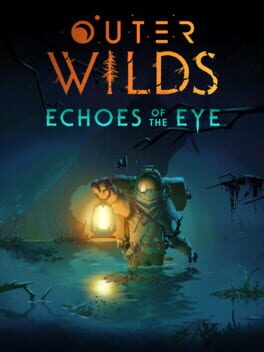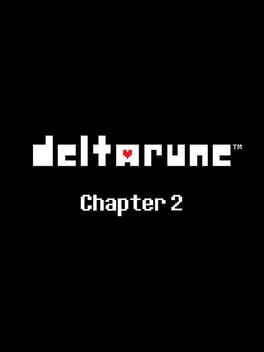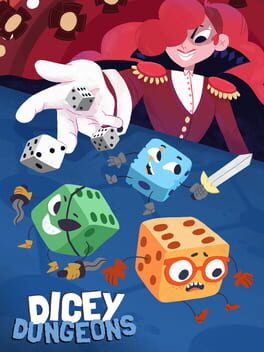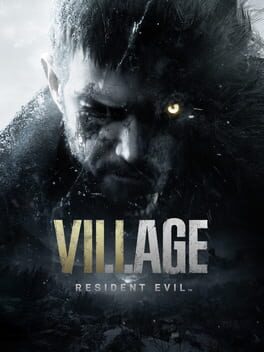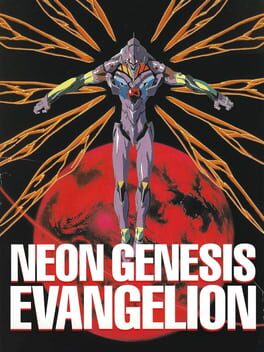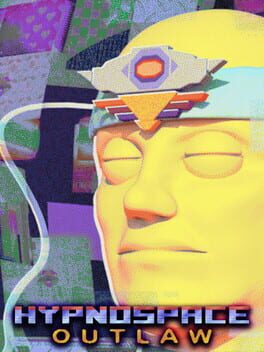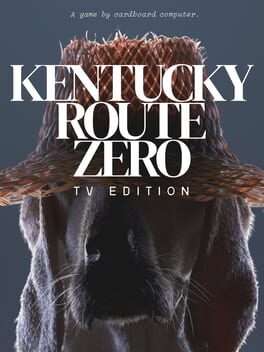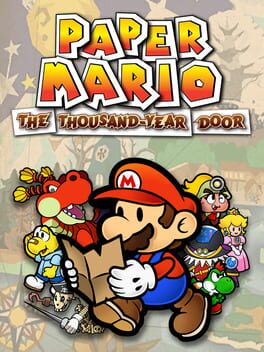nex3
BACKER
52 Reviews liked by nex3
This review contains spoilers
the Hearthians are born into a world without choice. you are going down with the ship, so to speak, whether you want to or not. the base game toys with the idea that maybe you might be able to stop this, maybe you can evacuate everyone, maybe you can just fight and do.... Something, anything in the face of inevitable annihilation. slowly through exploration, you learn more and come to terms with your fate. pulling the warp core from the Ash Twin project is looking your own death in the face and choosing Yes, like a warm handshake of a deal for one last goodbye to all of your friends. you understand what Solanum has known for what must feel like an eternity. the Nomai were wrong: the Eye of the Universe was not malicious or cruel, it simply Is. and we Were.
in Echoes of the Eye, it reframes this question. who are we to deny the universe the privilege of hearing the siren's call of the Eye? how do you come to terms with your world's inevitable death when your species is what caused it? how do you cope with the fact that your people destroyed their only home in the stars in pursuit of an unknowable power, only to discover they were wrong about it from the beginning?
the answer is that you do this violently. you hide yourself from the public world. you destroy the evidence of what you've done. you imprison your own kind. you kill intruders. you enact this so that you can maintain the idea that things can go back to The Way They Were, despite the glaring cracks in the façade. it is these cracks that the player is able to exploit and push through, and eventually cause the dam to break.
only at the end of everything, after the waters have flooded and put out every fire keeping the Strangers alive, The Prisoner accompanying you to the Eye is able to see what their kind was so afraid of: Uncertainty.
how strange to meet obliteration this way... not alone by blowing out your own lantern in a prison cell, but surrounded by new strangers that care for you. i wish we had more time together. ah, oh well... until we meet again
in Echoes of the Eye, it reframes this question. who are we to deny the universe the privilege of hearing the siren's call of the Eye? how do you come to terms with your world's inevitable death when your species is what caused it? how do you cope with the fact that your people destroyed their only home in the stars in pursuit of an unknowable power, only to discover they were wrong about it from the beginning?
the answer is that you do this violently. you hide yourself from the public world. you destroy the evidence of what you've done. you imprison your own kind. you kill intruders. you enact this so that you can maintain the idea that things can go back to The Way They Were, despite the glaring cracks in the façade. it is these cracks that the player is able to exploit and push through, and eventually cause the dam to break.
only at the end of everything, after the waters have flooded and put out every fire keeping the Strangers alive, The Prisoner accompanying you to the Eye is able to see what their kind was so afraid of: Uncertainty.
how strange to meet obliteration this way... not alone by blowing out your own lantern in a prison cell, but surrounded by new strangers that care for you. i wish we had more time together. ah, oh well... until we meet again
Deltarune: Chapter 2
2021
in the Grand Scope of video games, Undertale and Deltarune are not super innovative in their gameplay or anything by any stretch, more of just a remixing and repurposing of existing things in a very good and novel way. however, they are the ultimate Hangout Games, where you just want to pop into a world for a little bit and hear the funny little jokes that your friends tell as you walk around hanging out, doing nothing.
i would just play 100 of these. they are the "Falafel Wrap + Fries" of video games: extremely consistent, always delicious, filling, warms your heart, reminds you of better times
i would just play 100 of these. they are the "Falafel Wrap + Fries" of video games: extremely consistent, always delicious, filling, warms your heart, reminds you of better times
Dark Souls III
2016
I honestly didn't expect any game in the Souls series to surpass Dark Souls for me in large part due to an awareness that the most compelling aspect of that game, its rich, deeply interwoven world that is so well realised that it sears every corner of its map into your memory, is something I wouldn't again find in quite that form in any of the other three Souls games.
Dark Souls III knows it can't really compete on those terms, so instead does something completely different. It accepts a more linear path, much more linear than any of the other three Souls games by a fair margin (though still with a great deal of exploration to engage in within each individual area, never sacrificing the sense of intrigue, mystery and discovery), and engages in this style with intent; Dark Souls III is the most narrative of the Souls games, taking you on various emotional and thematic arcs in your journey across this waning land, arcs that can only exist with as much potency as they do thanks to the game knowing the order everything will be seen in. Rather than trying to be what the other games are, Dark Souls III gets it is best to be something proudly distinct.
The obvious retort here is how can you say Dark Souls III is interested in being something distinct when it has such a deep attachment to the past, bringing back so many places and characters from former games, how can that be consistent with all these references that are littered everywhere. But again, just like with the game's more intense linearity, Dark Souls III ending up this way isn't due to being lazy or cashing in on the success of the Souls series, this is intentional. These references are serving a very particular effect. In its dying days this world is crashing in on itself, colliding with other worlds, time and space becoming unhinged as this age approaches its final moments, and these echoes of former games, so many of them off-putting or bizarrely, indescribably nonsensical, are the most unsettling way to make this felt. There are so many moments where these references put a smile on my face, only to be followed up with the feeling that it doesn't feel quite right, this sense of unease creeping up on me.
The feelings this game engenders are so intentional, and so powerful, and I think thematically it ends up being the richest, most fascinating entry in the series as a result.
Even beyond all of this, beyond all the ways the game's seeming weaknesses somehow act as marked strengths, and beyond the depth of emotion found within all of it, Dark Souls III is also just fun. It is the most refined of the four Souls games, learning a lot of lessons from what came before it. There's still some amount of arcane nonsense that is hard to ever really work out on your own, secrets within secrets, but importantly this stuff doesn't touch the actual mechanics of the game of the game so much anymore. In terms of understanding how to play the game Dark Souls III ends up being the most accessible of all the Souls games and is all the better for it, with a bunch of quality of life features present also that manage to make the game more pleasant to engage with without ever compromising the game's emotionality or sense of fascination.
Dark Souls III has easily the highest floor of the Souls games, with a level of consistency that is wildly unheard of in the series. Meanwhile the high-points for me rank as the very peak of the series partly due to the stellar art direction, partly due to the game taking Dark Souls' macro-world design and trying to apply it on a more micro-level to fit within this linear approach (everything about the design of the Cathedral's map is just a work of art), and partly because Dark Souls III's increased sense of narrative spreads to boss fights also making so many of the best fights into actual stories packed with emotion, awe and fascination, with the mechanics of these fights complimenting the stories being told so beautifully.
It's genuinely amazing to me how Dark Souls III manages to all at once iterate and develop on what came before it in a way that fully understands it could never exist without these earlier entries, whilst also keenly charging forth as something so different from these earlier entries, boldly and unapologetically.
Dark Souls III knows it can't really compete on those terms, so instead does something completely different. It accepts a more linear path, much more linear than any of the other three Souls games by a fair margin (though still with a great deal of exploration to engage in within each individual area, never sacrificing the sense of intrigue, mystery and discovery), and engages in this style with intent; Dark Souls III is the most narrative of the Souls games, taking you on various emotional and thematic arcs in your journey across this waning land, arcs that can only exist with as much potency as they do thanks to the game knowing the order everything will be seen in. Rather than trying to be what the other games are, Dark Souls III gets it is best to be something proudly distinct.
The obvious retort here is how can you say Dark Souls III is interested in being something distinct when it has such a deep attachment to the past, bringing back so many places and characters from former games, how can that be consistent with all these references that are littered everywhere. But again, just like with the game's more intense linearity, Dark Souls III ending up this way isn't due to being lazy or cashing in on the success of the Souls series, this is intentional. These references are serving a very particular effect. In its dying days this world is crashing in on itself, colliding with other worlds, time and space becoming unhinged as this age approaches its final moments, and these echoes of former games, so many of them off-putting or bizarrely, indescribably nonsensical, are the most unsettling way to make this felt. There are so many moments where these references put a smile on my face, only to be followed up with the feeling that it doesn't feel quite right, this sense of unease creeping up on me.
The feelings this game engenders are so intentional, and so powerful, and I think thematically it ends up being the richest, most fascinating entry in the series as a result.
Even beyond all of this, beyond all the ways the game's seeming weaknesses somehow act as marked strengths, and beyond the depth of emotion found within all of it, Dark Souls III is also just fun. It is the most refined of the four Souls games, learning a lot of lessons from what came before it. There's still some amount of arcane nonsense that is hard to ever really work out on your own, secrets within secrets, but importantly this stuff doesn't touch the actual mechanics of the game of the game so much anymore. In terms of understanding how to play the game Dark Souls III ends up being the most accessible of all the Souls games and is all the better for it, with a bunch of quality of life features present also that manage to make the game more pleasant to engage with without ever compromising the game's emotionality or sense of fascination.
Dark Souls III has easily the highest floor of the Souls games, with a level of consistency that is wildly unheard of in the series. Meanwhile the high-points for me rank as the very peak of the series partly due to the stellar art direction, partly due to the game taking Dark Souls' macro-world design and trying to apply it on a more micro-level to fit within this linear approach (everything about the design of the Cathedral's map is just a work of art), and partly because Dark Souls III's increased sense of narrative spreads to boss fights also making so many of the best fights into actual stories packed with emotion, awe and fascination, with the mechanics of these fights complimenting the stories being told so beautifully.
It's genuinely amazing to me how Dark Souls III manages to all at once iterate and develop on what came before it in a way that fully understands it could never exist without these earlier entries, whilst also keenly charging forth as something so different from these earlier entries, boldly and unapologetically.
Dicey Dungeons
2019
an easier, breezier, chill roguelike "deck"-builder
Dicey Dungeons gets a lot of flak in comparison to Slay the Spire, but the games are trying to do entirely different things. DD is much more of a 20-30 minute game where you want to just knock out a quick run, whereas StS feels a lot more like embarking on a long journey and grinding away at advantages over time. in Dicey Dungeons, you can mess around with weapons, see how they feel, swap them out between fights (unless you're playing as Witch or Jester i guess). there's less of a commitment of adding new items to your pool than there is adding a card to your deck in Slay the Spire.
however, this DOES mean that Dicey Dungeons does end up lacking in the overall depth that a game like StS has. often times on each character, i had found a build that worked very well and i didn't really see much reason to deviate from it other than novelty. a lot of the items want specific other items, so there's not as much weird cross-pollination between strategies or the playstyles between characters.
this is the game's downside to me, but more than likely an advantage to others. it makes it really easy to pick up for the first time, and the actual gameplay leans very much into the "just one more run" aspect that a lot of these games tap into. even when the game was at its most challenging (aka: Levels 4 and 6+ of the Witch, lmao), it felt fun to keep going and trying to succeed.
Dicey Dungeons gets a lot of flak in comparison to Slay the Spire, but the games are trying to do entirely different things. DD is much more of a 20-30 minute game where you want to just knock out a quick run, whereas StS feels a lot more like embarking on a long journey and grinding away at advantages over time. in Dicey Dungeons, you can mess around with weapons, see how they feel, swap them out between fights (unless you're playing as Witch or Jester i guess). there's less of a commitment of adding new items to your pool than there is adding a card to your deck in Slay the Spire.
however, this DOES mean that Dicey Dungeons does end up lacking in the overall depth that a game like StS has. often times on each character, i had found a build that worked very well and i didn't really see much reason to deviate from it other than novelty. a lot of the items want specific other items, so there's not as much weird cross-pollination between strategies or the playstyles between characters.
this is the game's downside to me, but more than likely an advantage to others. it makes it really easy to pick up for the first time, and the actual gameplay leans very much into the "just one more run" aspect that a lot of these games tap into. even when the game was at its most challenging (aka: Levels 4 and 6+ of the Witch, lmao), it felt fun to keep going and trying to succeed.
me being chased through a big, spooky, ornate mansion trying to be sucked by a Giant MILF and her three awful daughters: oh jeez!!!! hahahaha yeah!!! this owns!!!!
me mag-dumping my 12th "large armored enemy" in a row shortly before flying through the air in a tank: this sucks
----------------------------
this game would be better if 80% of the dialogue and 30% of the gameplay was removed. same problems as the last 1/3 of RE7, but with somehow worse tone and writing. thanks for the Large Wife tho.
me mag-dumping my 12th "large armored enemy" in a row shortly before flying through the air in a tank: this sucks
----------------------------
this game would be better if 80% of the dialogue and 30% of the gameplay was removed. same problems as the last 1/3 of RE7, but with somehow worse tone and writing. thanks for the Large Wife tho.
Hypnospace Outlaw
2019
Hollow Knight
2017
i really wish i enjoyed this game as much as everyone else does (or people said i would).
for a game described to me as "metroidvania with precision platforming meets Dark Souls," it really comes out feeling like less than a sum of those parts. in terms of the world design and exploration, the game is great at matching the joy of breaking into every tiny crevasse to find secrets and lore that Dark Souls does. the characters and lightly revealed lore that's steeped in mystery is great. the platforming is serviceable, but whenever the game decides to flip the switch to try and turn into Super Meat Boy (sometimes quite literally with buzzsaws) it feels very disjointed and out of place.
the combat (mainly by way of the bosses) by comparison feels like a chore. even by the end of the game when i had gotten a lot better at maneuvering in fights, most of the boss fights were not engaging or challenging beyond "hope you get the good pattern that allows you to heal". in addition to this, why not be more generous with benches in regards to boss placements?
it's small decisions like this that continued to baffle me as time went on. you get more movement options as the game unfolds, but trekking between areas connected by stags still feels arduous enough to dissuade me from wanting to explore more. i enjoy the lore of the stags, but would fast travelling between benches break the game so much to prevent it from being included?
it's things like this that makes me feel like the game is bloated. this may be a problem of playing the game now that there's 4 extra content patches (give players a way to play the launch version pleaseeeee), but there's just so much in the game that feels like Content For Content's Sake. the game like a love letter to the old metroidvanias the developers loved that has been weighed down by AAA games' addiction to More. i can see the mechanics (literally) taken 1-to-1 from Super Metroid, but i don't see the tightly crafted world, simplicity, or elegance of it. i see a checklist of things to waste time doing rather than a curated experience.
for a game described to me as "metroidvania with precision platforming meets Dark Souls," it really comes out feeling like less than a sum of those parts. in terms of the world design and exploration, the game is great at matching the joy of breaking into every tiny crevasse to find secrets and lore that Dark Souls does. the characters and lightly revealed lore that's steeped in mystery is great. the platforming is serviceable, but whenever the game decides to flip the switch to try and turn into Super Meat Boy (sometimes quite literally with buzzsaws) it feels very disjointed and out of place.
the combat (mainly by way of the bosses) by comparison feels like a chore. even by the end of the game when i had gotten a lot better at maneuvering in fights, most of the boss fights were not engaging or challenging beyond "hope you get the good pattern that allows you to heal". in addition to this, why not be more generous with benches in regards to boss placements?
it's small decisions like this that continued to baffle me as time went on. you get more movement options as the game unfolds, but trekking between areas connected by stags still feels arduous enough to dissuade me from wanting to explore more. i enjoy the lore of the stags, but would fast travelling between benches break the game so much to prevent it from being included?
it's things like this that makes me feel like the game is bloated. this may be a problem of playing the game now that there's 4 extra content patches (give players a way to play the launch version pleaseeeee), but there's just so much in the game that feels like Content For Content's Sake. the game like a love letter to the old metroidvanias the developers loved that has been weighed down by AAA games' addiction to More. i can see the mechanics (literally) taken 1-to-1 from Super Metroid, but i don't see the tightly crafted world, simplicity, or elegance of it. i see a checklist of things to waste time doing rather than a curated experience.
Omori
2020
perfect example of a "7/10 game"
a game of memorable highs, uninteresting lows, but ultimately a lot of forgettable middles. this game feels a lot like someone's first game and the fact that it is shows. it's about 10 hours too long (it took me about 20 hours to beat with avoiding a lot of the random encounters, not doing much side-content), the stuff happening in the dreamworld doesn't really have any bearing on the story 95% of the time, and most of the characters feel very ignorable, superfluous, and slightly annoying due to their constant presence.
that being said, the game is VERY ambitious in its scope, which i appreciate. it feels like a few interesting ideas and discussions that are weighted down by the game's need to feel "gamey" and long due to typical RPG bloat. can't wait until people fully abandon the RPG genre as the de-facto means to tell a story in a narrative game!
a game of memorable highs, uninteresting lows, but ultimately a lot of forgettable middles. this game feels a lot like someone's first game and the fact that it is shows. it's about 10 hours too long (it took me about 20 hours to beat with avoiding a lot of the random encounters, not doing much side-content), the stuff happening in the dreamworld doesn't really have any bearing on the story 95% of the time, and most of the characters feel very ignorable, superfluous, and slightly annoying due to their constant presence.
that being said, the game is VERY ambitious in its scope, which i appreciate. it feels like a few interesting ideas and discussions that are weighted down by the game's need to feel "gamey" and long due to typical RPG bloat. can't wait until people fully abandon the RPG genre as the de-facto means to tell a story in a narrative game!
this is the sequel that Dark Souls players deserved in 2014.
i have a lot of issues with this game: the lack of verticality in its level design as compared to DS1, its reuse of early bosses constantly throughout the game that don't offer anything new or interesting, the tying of invicibility frames and estus drinking speed to a stat, its abundance of bosses that are either "Capra Demon But Different" or "Hey Y'all.... Remember This? ;)"
however, the worst offense is the game's cruelty in its encounter design. in Dark Souls 1, the little tricks and traps in the environment feel like a parent warning you not to touch a hot pan but you do it anyways. maybe you didn't know, maybe you should have known better but you still did it. in contrast, Dark Souls 2 feels like a parent going on an hour-long tirade about how all you kids ever want is pizza for dinner. DS1 feels whimsical and playful, DS2 feels like the game is rubbing your nose in the carpet to show you what happens when you get what you want.
i wouldn't mind this as much if the game's meta-commentary surrounding the nature of its gameplay and cyclical death wasn't so.... forgettable? it feels like it's gesturing toward a thoughtful discussion surrounding fan expectation, demand for sequels, fear of change, and games being "miserable on purpose," but it doesn't have much to say about it. by comparison, Pathologic 2, a game that is VERY much miserable on purpose, feels intentional in its slow, macabre, sadcore plot, because it's trying to fully disempower the player (and not just make them powerful later like DS2) to make them understand that if they were in a similar situation, they WOULD probably die and not be a special hero.
that being said, the game is still very good. it's my least favorite of the post-Dark Souls FromSoft output, but if this game was reskinned as a Zelda game and put out by Nintendo, it would be in my top 5 zelda games. it's only through comparison to other series entries that this game looks as bad as it does.
i have a lot of issues with this game: the lack of verticality in its level design as compared to DS1, its reuse of early bosses constantly throughout the game that don't offer anything new or interesting, the tying of invicibility frames and estus drinking speed to a stat, its abundance of bosses that are either "Capra Demon But Different" or "Hey Y'all.... Remember This? ;)"
however, the worst offense is the game's cruelty in its encounter design. in Dark Souls 1, the little tricks and traps in the environment feel like a parent warning you not to touch a hot pan but you do it anyways. maybe you didn't know, maybe you should have known better but you still did it. in contrast, Dark Souls 2 feels like a parent going on an hour-long tirade about how all you kids ever want is pizza for dinner. DS1 feels whimsical and playful, DS2 feels like the game is rubbing your nose in the carpet to show you what happens when you get what you want.
i wouldn't mind this as much if the game's meta-commentary surrounding the nature of its gameplay and cyclical death wasn't so.... forgettable? it feels like it's gesturing toward a thoughtful discussion surrounding fan expectation, demand for sequels, fear of change, and games being "miserable on purpose," but it doesn't have much to say about it. by comparison, Pathologic 2, a game that is VERY much miserable on purpose, feels intentional in its slow, macabre, sadcore plot, because it's trying to fully disempower the player (and not just make them powerful later like DS2) to make them understand that if they were in a similar situation, they WOULD probably die and not be a special hero.
that being said, the game is still very good. it's my least favorite of the post-Dark Souls FromSoft output, but if this game was reskinned as a Zelda game and put out by Nintendo, it would be in my top 5 zelda games. it's only through comparison to other series entries that this game looks as bad as it does.
Dark Souls
2011
(for this review, i am using it to describe all of the 5 Acts and the 5 interludes as well)
this game is a watershed moment in games and it lasted a full decade. even if you will never play this game, you will touch a different game in the next 30 years that has had its DNA irrevocably altered by it. nearly everything about what games makes great is present somewhere in kentucky route zero.
this game is a watershed moment in games and it lasted a full decade. even if you will never play this game, you will touch a different game in the next 30 years that has had its DNA irrevocably altered by it. nearly everything about what games makes great is present somewhere in kentucky route zero.
